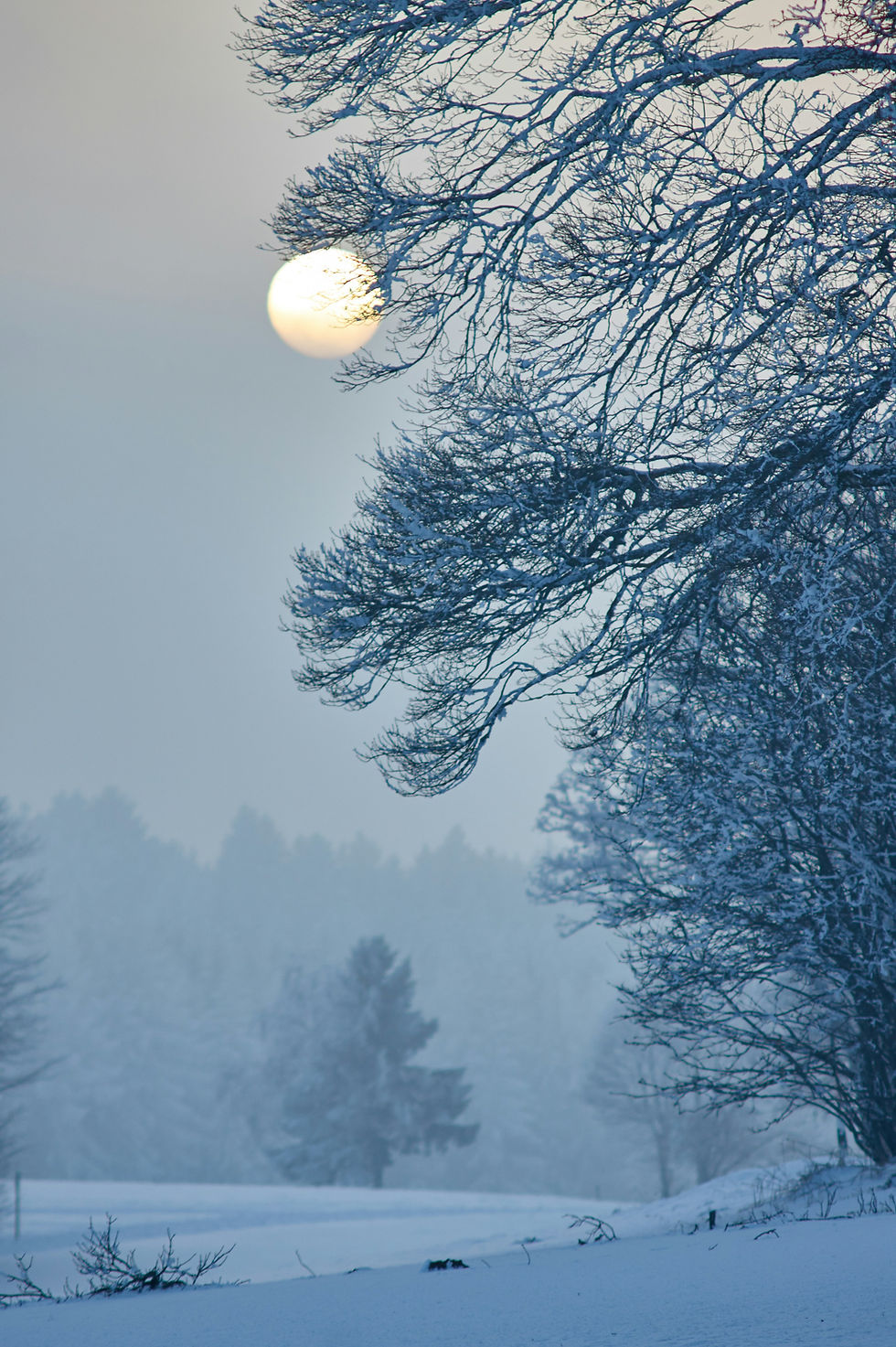Finding Your Light In a Sea of Darkness
- michelle m. davis
- Nov 15, 2020
- 3 min read
Remember the boost you feel while setting your clocks one hour ahead each spring?
The idea of prolonged sunlight promotes pure joy. We envision the promise of flowers blooming, trees’ leaves providing shade on hot days, fireflies at dusk, and warm summer evenings that last till after nine o’clock.
But now we’re at the opposite end of the spectrum. We’ve turned the clocks back as Winter Solstice nears. I admit that these shorter days and seemingly endless nights dampen my spirits, causing me to wonder, “What am I going to do now that it becomes dark so early?”
Couple the diminishing light with COVID restrictions, and our options appear fewer than ever. Yet, March 14th (the beginning of Daylight Savings for 2021) is four long months away. That means we have almost 120 days until we set the clocks ahead once again.
So, what can we do to occupy ourselves after the sun sets? How can we stay positive, motivated, healthy, and less affected by the lack of light?
There’s definitely a science behind how our moods correlate to the amount of exposure to sunlight. However, this year seems different. The impact’s magnified, and I find myself a bit lost around five o’clock in the afternoon, unsure of what to do with the hours ahead.
Perhaps the real question I’m grappling with is not how to occupy myself during the hours of darkness, maybe my confusion is deeper than losing Daylight Savings time. I’ve been wondering if this issue is the lack of sunlight or possibly something bigger.
How do we find our own light in a sea of darkness? What keeps our light shining when so much around us is dim?
The darkness we are all experiencing isn’t merely due to the time change. We’re handling a lot right now, and to be honest, it’s becoming exhausting. Yet, as I contemplated the multiple “dark” aspects currently plaguing our world, I began to ask … is it the lack of light that bothers me most, or could it be that the sunshine and longer days filtered my reality and provided multiple distractions that prevented me from sitting with our current situation?
Did I focus on “doing” so I could avoid “being”?
When we’re busy, we are more apt not to think about what’s unpleasant in our lives. It’s easier to find diversions. But now that things the sun’s light is fading quickly, we may find ourselves staring at the stark realities we’ve tried to avoid.
But how do we do to deal with the darkness and face what is?
Whenever I’m at a crossroads, I try to remember to look to nature for guidance. As winter approaches, birds fly south, bears hibernate, and plants stop growing, all in order to regroup and restore, allowing them to return in spring and begin anew.
There is great wisdom in these ingrained patterns, making me wonder if humans should adopt similar habits as winter approaches. While we can’t all fly south to warmer environments or isolate in caves, what if instead of fighting the longer hours of darkness, we welcomed them, opened our arms to the endless possibilities of restoration and contemplation?
For me, this translates to moving my morning yoga practice to the late afternoon, permitting myself to sit down and read when dusk arrives, and exploring new recipes so I can create meals instead of merely making dinner. And eating a bit earlier allows for more meaningful conversations … because we now have more time. We are no longer rushing.
Maybe you’ll find yourself taking a more active approach, such as learning a new language or adopting that hobby you’ve always wanted to explore. That’s fantastic. Just remember not to dodge the solitude that this time of the year naturally provides. Allow for downtime, rest, and rejuvenation. Become curious, explore concepts, turn within, and encourage the seedlings of your personal growth to germinate, preparing to blossom in the upcoming months.
Permitting a pause doesn’t mean our days are any less productive. Actually, it might be quite the opposite. Limited light helps me prioritize, ensure that I “get done” what must occur, no longer procrastinating and relying on the later hours to complete my tasks.
But that’s OK, perhaps better than OK. Because then, after the sun has set, there is time to be.
Most of us live a life of doing, hurrying from one task to another. While it feels good to cross off those “to do” items, consider taking a cue from nature and learn to let go once the sun sets. See what your body craves. What draws your attention? You might be surprised at what occurs as you find your light in an evening of darkness.













Comments